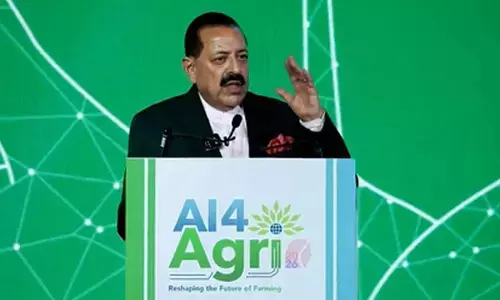Advancing education for tomorrow’s leaders

Technology plays a pivotal role in advancing education for tomorrow’s leaders. With the rise of digital learning platforms, online resources, and interactive tools, educators have unprecedented opportunities to engage students in innovative ways. Virtual reality simulations, AI-driven adaptive learning systems, and collaborative online platforms can enhance the learning experience and cater to individual student needs. By leveraging technology effectively, education can become more personalized, accessible, and effective in nurturing the skills required for leadership in the 21st century
In today’s rapidly evolving world, the role of education in shaping the leaders of tomorrow has never been more crucial. As society navigates through complex challenges, from technological advancements to environmental sustainability, the need for innovative and forward-thinking leaders has become paramount. Therefore, it is imperative to explore how education can be advanced to cultivate the skills and knowledge necessary for future leaders to thrive in an ever-changing landscape.
First and foremost, a fundamental aspect of advancing education for tomorrow’s leaders is ensuring inclusivity and accessibility. Education should not be a privilege reserved for a select few but a fundamental right accessible to all individuals, regardless of their background or socioeconomic status. By breaking down barriers to education and providing equal opportunities for learning, we can empower a diverse array of individuals to become the leaders of tomorrow.
Education must adapt to the evolving needs of society. This requires a shift away from traditional teaching methods towards more dynamic and interdisciplinary approaches. Future leaders will need to possess not only a strong foundation in core subjects such as mathematics and science but also critical thinking skills, creativity, and adaptability. By incorporating project-based learning, experiential learning opportunities, and real-world problem-solving into the curriculum, education can better prepare students to tackle the complex challenges they will face in the future.
Technology plays a pivotal role in advancing education for tomorrow’s leaders. With the rise of digital learning platforms, online resources, and interactive tools, educators have unprecedented opportunities to engage students in innovative ways. Virtual reality simulations, AI-driven adaptive learning systems, and collaborative online platforms can enhance the learning experience and cater to individual student needs. By leveraging technology effectively, education can become more personalized, accessible, and effective in nurturing the skills required for leadership in the 21st century. Additionally, fostering a culture of lifelong learning is essential for cultivating future leaders. In a world where knowledge is constantly evolving, the ability to adapt and learn continuously is indispensable. Education should instill a love of learning and curiosity in students, encouraging them to seek out new opportunities for growth and development throughout their lives. By promoting a growth mindset and providing ongoing support for professional development, education can empower individuals to become lifelong learners and effective leaders in their respective fields.
Global perspectives must be integrated into education to prepare future leaders for an interconnected world. In an era of globalization, cultural competence, and global awareness are essential skills for effective leadership. By incorporating global issues, cross-cultural understanding, and international collaboration into the curriculum, education can foster a sense of global citizenship and prepare students to address global challenges collaboratively.
Ethics and values should be at the forefront of education for future leaders. In a world where ethical dilemmas are increasingly prevalent, leaders must possess a strong moral compass and a commitment to integrity and social responsibility. Education should emphasize ethical decision-making, empathy, and social justice, ensuring that future leaders are equipped to make principled choices that benefit society as a whole.
Advancing education for tomorrow’s leaders is a multifaceted endeavor that requires a holistic approach. By prioritizing inclusivity, adaptability, technology integration, lifelong learning, global perspectives, and ethical leadership, education can empower individuals to become the innovative and compassionate leaders the world needs. By shaping futures through education, we can pave the way for a brighter and more sustainable tomorrow.




